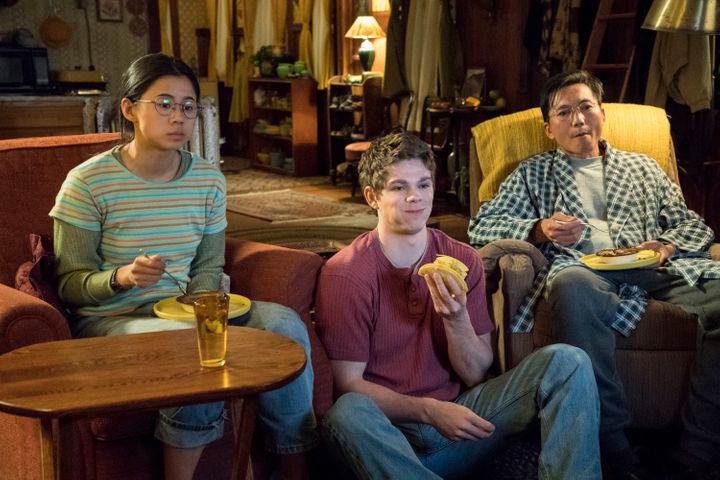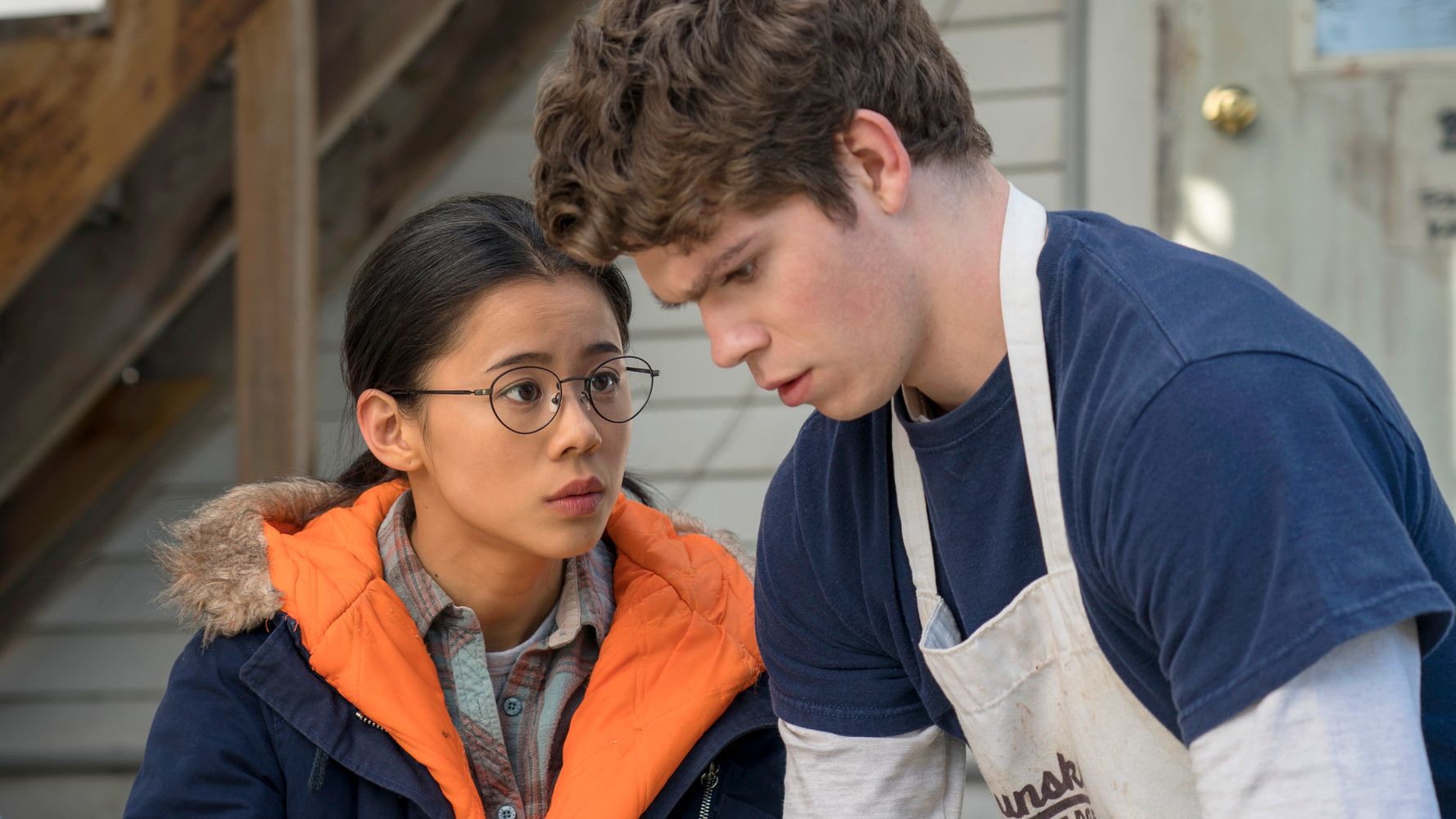[ad_1]
Anyone expecting “The Half of It” to end with the romantic union of comely, hormone-crazed teens will have their hopes dashed in less than five minutes.
“In case you haven’t guessed, this is not a love story,” the protagonist proclaims in a voiceover at the start of the film, which hits Netflix on Friday. “Or not one where anyone gets what they want.”
As the line implies, “The Half of It” has forward-thinking aspirations that set it apart from traditional teen fare. Still, it isn’t afraid to wink at its predecessors. Like “Clueless” and “Easy A,” it riffs on a classic text ― in this case, the 1897 French play “Cyrano de Bergerac” ― and transplants updated versions of its source material’s characters into a modern high school for comedic effect.
It gives us a relatable, if complicated, heroine, too. “The Half of It” follows Ellie Chu (played by Leah Lewis), a bookish teen being raised by a widowed father (Collin Chou) in the Pacific Northwest who ghostwrites her classmates’ term papers when she’s not dodging anti-Asian epithets. When bumbling jock Paul (Daniel Diemer) discovers Ellie’s way with words, he asks her to help him woo the pretty and popular Aster (Alexxis Lemire) via handwritten letters and messaging apps.
But once Ellie begins communicating with Aster as “Paul,” she, too, begins to harbor feelings for her female classmate.

Though writer and director Alice Wu didn’t intend for “The Half of It” to debut amid the coronavirus crisis, the movie’s focus on an Asian American protagonist ― particularly one who receives racist bullying ― feels topical. Cities across the world have reported a troubling surge in anti-Asian hate crimes and other forms of discrimination related to COVID-19.
A California native, Wu also drew from her experience as a lesbian in the Asian American community for her 2005 debut feature, “Saving Face.” Starring Michelle Krusiec, “Saving Face” screened at the Sundance Film Festival and earned respectable reviews. Still, Wu spent years after the film’s release in short-term writing gigs before setting her cinematic ambitions aside and relocating to San Francisco.
She couldn’t escape her artistic inklings entirely, and developed an outline for what would become “The Half of It” in her head. Shortly after the 2016 election, she wrote a personal check for $1,000 to the National Rifle Association ― an organization she staunchly opposes ― and gave it to a friend, who promised to mail it if a first draft of the screenplay wasn’t completed in five weeks. It turned out to be an effective way to hold herself to a deadline, and she managed to forgo the dreaded donation by finishing her script.
“The Half of It,” however, would continue to evolve in its specifics. Though Wu had originally written Ellie, Paul and Aster as characters in their mid-20s, she told HuffPost she reimagined them as high school students who were “not self-actualized in a lot of ways,” yet “taking steps toward their future.”
“High schools, at least most high schools in the country, are the one place where you can get people from a wide variety of backgrounds,” she said. “As an adult, that doesn’t happen anymore. We’re all in our own bubbles of our choosing, and it’s a little harder to get shaken out of it.”

Like “Cyrano de Bergerac,” “The Half of It” presents its central trio of characters as points on a romantic triangle. Still, Wu wanted her film to be light on sentimentality.
“Our society exalts romantic love,” she said. “That’s wonderful, but I think there is room to say that deep friendship that doesn’t have sex anywhere in it can also be the highest pinnacle of love.”
Lewis, best known for The CW’s “Nancy Drew,” instantly loved the script.
“Seeing an Asian American be a lead, and also seeing someone who is a nonconventional hero, really appealed to me,” she said. “I was blown away by the coming-of-age, female sexuality aspect. As we grow up, we watch these rom-coms, we read books where the guy gets the girl, girl gets the guy and tra-la-la, and that’s not always how it ends for people. Friendship is love. It’s very important, and that is such a huge win.”
Hollywood has become more inclusive of LGBTQ narratives in recent years, thanks to movies like “Love, Simon” and Ryan Murphy’s ever-expanding universe of queer TV characters. By comparison, Wu’s film doesn’t villainize traditional or conservative views (Paul is frank about his Christian faith) and opts out of having Ellie identify with any specific label.

“Alice made it very clear that this was not a coming-out story,” Lewis recalled. “But it’s definitely a discovery story. That’s how I kind of internalized it. We never see Ellie actually say, ‘I am this or that.’ There aren’t a lot of stories that are told about the beginning of those feelings and discovering that.”
Early response to “The Half of It” has been encouraging. Rolling Stone praised the movie for “undercutting Hollywood formula,” while The Hollywood Reporter called it “smart, charming and endlessly refreshing.” On Wednesday, the film received the 2020 Tribeca Film Festival Award for Best Narrative Feature in a virtual ceremony.
Both Lewis and Wu believe the impact of “The Half of It” lies beyond critical accolades.
For her part, Lewis said the movie has the potential to “incite a sense of unity and understanding” during a fractured political climate, with viewers coming away with “a new sense of how they look at love.”
“Anytime you can increase the capacity for empathy ― that’s the goal,” Wu added. “If I can get a 45-year-old straight white conservative guy from the Heartland to identify with a 17-year-old closeted immigrant girl, I’ve done my job.”
Calling all HuffPost superfans!
Sign up for membership to become a founding member and help shape HuffPost’s next chapter
[ad_2]
Source link

